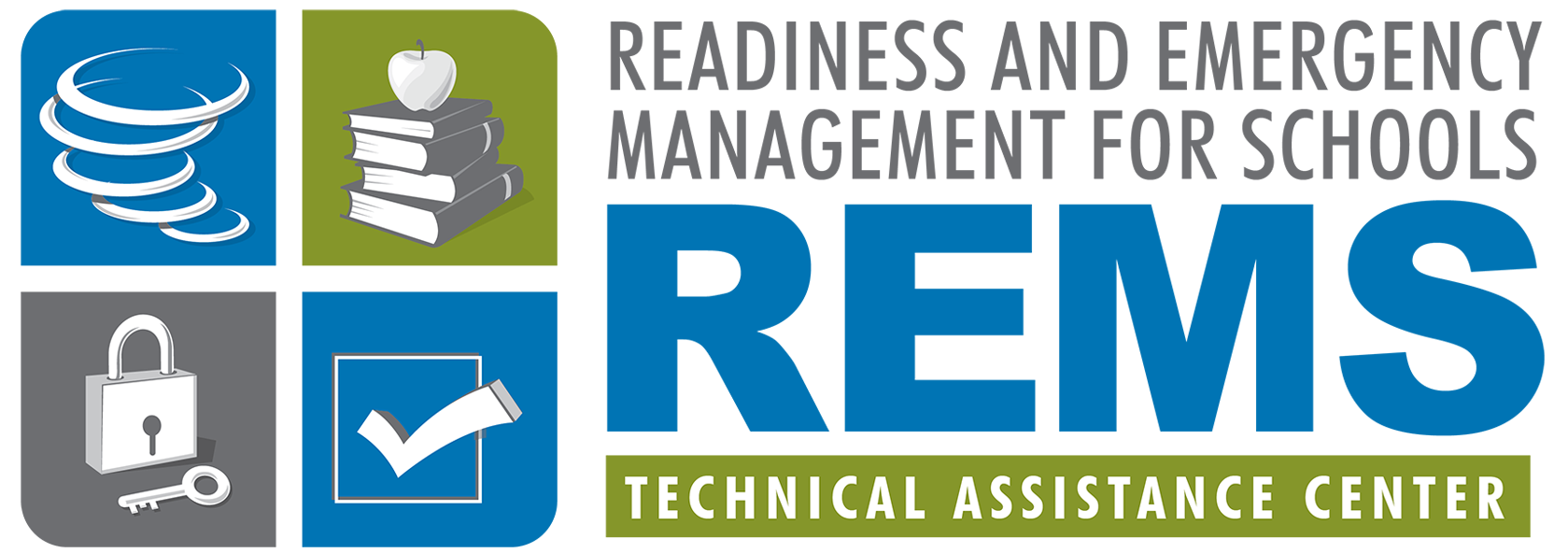Share Your Feedback
The REMS TA Center seeks your feedback to ensure that the Website is continually enhanced to meet your needs.

Access resources on planning for recovery:
National Disaster Recovery Framework Fact Sheet Recovery Planning Fact Sheet Webinar Planning for Your Education Agency’s Recovery From an Emergency IncidentRecovery Annex
This annex describes how IHEs will recover from an emergency. The four most fundamental kinds of recovery are academic recovery, physical recovery, fiscal recovery and psychological and emotional recovery.
The planning team should consider the following when developing its goals, objectives, and courses of action:
- Academic recovery
- When the IHE should be closed and reopened, and who has the authority to close and reopen the IHE
- What temporary space(s) the IHE may use if IHE buildings and facilities cannot be immediately reopened
- How to provide alternate educational programming in the event that students cannot physically reconvene
- Physical recovery
- How to document IHE assets, including physically accessible facilities, in case of damage
- Which personnel have expert knowledge of the IHE’s assets, and how and where they will access records to verify current assets after an emergency
- How to provide for the housing and nutrition needs of students, faculty, or staff living on campus
- How to address research facilities that contain sensitive information, materials, or animals
- How the IHE will work with utility and insurance companies before an emergency to support a quicker recovery
- Fiscal recovery
- How the IHE leadership will be included (e.g., the president or chief executive officer, chief business officer, personnel director, and risk manager)
- How faculty and staff will receive timely and factual information regarding returning to work
- What sources the IHE may access for emergency relief funding
- Psychological and emotional recovery
- Who will serve as the team leader
- Where counseling and psychological first aid will be provided
- How the IHE will create a calm and supportive environment for its community, share basic information about the incident, provide psychological first aid (if trained), and identify those who may need immediate crisis counseling
- Who will provide trained counselors
- How to address immediate, short-, and long-term counseling needs of students, faculty, staff, and families
- How to handle commemorations, memorial activities, or permanent markers and/or memorial structures (if any will be allowed), including concerns such as when a commemoration site will be closed, what will be done with notes and tributes, and how students will be informed in advance
- How memorial activities will strike a balance among honoring the loss, resuming IHE and class routines and schedules, and maintaining hope for the future
- How the Public Health, Medical, and Mental Health Annex will inform the actions and plans for all components of the Recovery Annex


